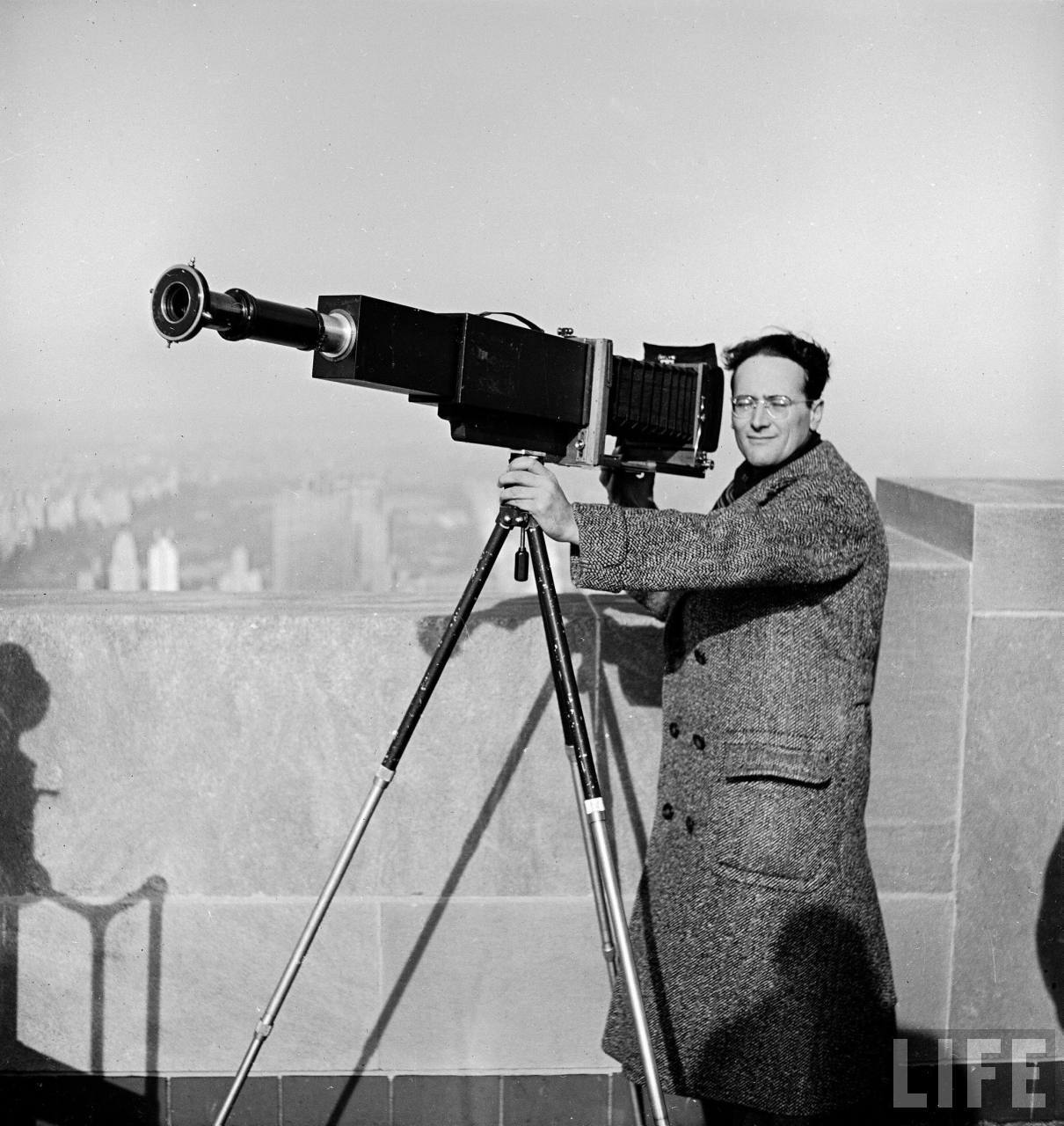
This series has so far been a review of German- American photographers: Eisenstaedt, Brandt, and now Andreas Feininger. We may note the series producer, Andreas Landshoff, was himself a German emigre and thereby draw a rather obvious conclusion. I assume it is Landshoff (who passed away in 1988) that is doing the interviewing. I have been unable to otherwise identify who this person might be as he is not noted in the series credits.
 One of the themes developed by the interviewer is Feininger's interest in composition and technique. This is evident in his images of snails and skeletons, which have been shot in such a way as to highlight the forms of the objects. His images of cityscapes are equally concerned with form. The interviewer remarks that his work has few examples of people, and Feininger notes that not only is this true, but that his photos of humans tend to stress form, or an archetype, over detail, or the particular. Feininger also relates that much of his work was done with telephoto lenses, suggesting a distance between the artist and the subject.
One of the themes developed by the interviewer is Feininger's interest in composition and technique. This is evident in his images of snails and skeletons, which have been shot in such a way as to highlight the forms of the objects. His images of cityscapes are equally concerned with form. The interviewer remarks that his work has few examples of people, and Feininger notes that not only is this true, but that his photos of humans tend to stress form, or an archetype, over detail, or the particular. Feininger also relates that much of his work was done with telephoto lenses, suggesting a distance between the artist and the subject.
I learned from Feininger that telephoto lenses can be used to great effect and for more than simply bringing distant subjects closer. Now I'm eager to try one to see what I can do, what kind of viewing it opens up.
Finally, one more recurring theme that presents is Feininger's insistence on uniqueness, of producing something new and previously unseen. He says this is one of the reasons he worked exclusively in black and white, because color simply re-presents the visual world as we know it. Black and white also aids in an approach stressing form.
Finally, one more recurring theme that presents is Feininger's insistence on uniqueness, of producing something new and previously unseen. He says this is one of the reasons he worked exclusively in black and white, because color simply re-presents the visual world as we know it. Black and white also aids in an approach stressing form.

The interviewer is Peter Adam, working for the BBC. Andreas Landshoff was the producer and is still very much alive. It is his father, Fritz Landshoff who was the German emigre who passed away in 1988. But the latter had nothing to do with this production.
ReplyDeleteThank you for taking the time to share this information.
ReplyDelete